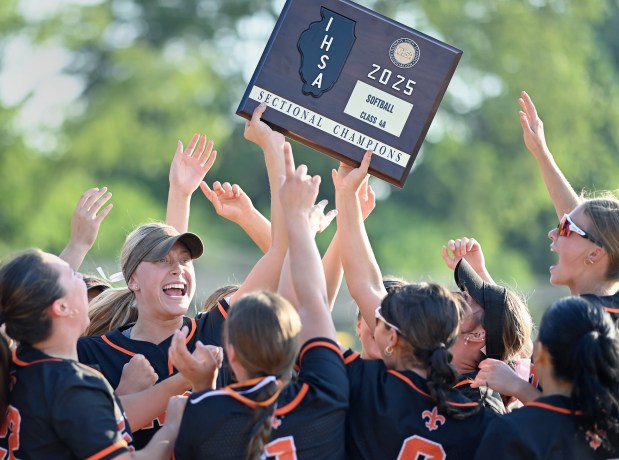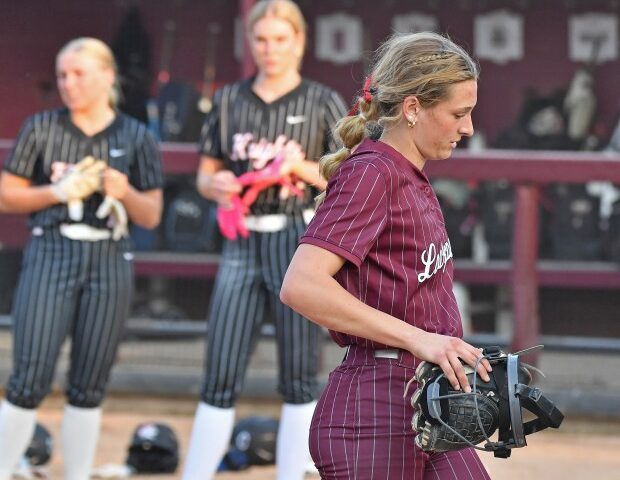Waukegan has never been known as a leader when it comes to environmental issues, but that may be changing. City officials are mulling a ban on the sale of Mylar balloons, and also the use of plastic bags and foam food containers.
It’s a forward-thinking path the City Council should follow as members meet Aug. 5 and are expected to vote on a proposal offered by Ald. Lynn Florian of the 8th Ward to bar the sale of helium-filled metallic balloons within city limits. She also wants to end the usage in Waukegan of take-away food boxes made of Styrofoam, a trademark of Dow Chemical, and similar brands, and the use of plastic bags after consumers make purchases.
It’s a bold move which follows similar action by the Lake County Board a few years ago. Her City Council colleagues should follow her lead and tackle the nagging plastic issues.
The U.S. is a top plastic-producing country and most plastics are made from fossil fuels. Global plastic pollution is becoming a major concern.
Mylar balloons, made of a shiny type of metalized plastic film, came into use across America late in the last century as a way to mark birthdays, special occasions, celebrations and passings. According to various sources, Mylar balloons were first introduced in the 1950s and have become the balloon of choice for Americans because they could hold helium longer than latex ones, and stay in the air for days.
Which is one of the problems with Mylar balloons. They are fire hazards and also threats to wildlife. The silvery coatings can conduct electricity and animals can ingest the balloons or become tangled in them.
Last week, a Mylar balloon was deemed responsible for knocking out power to nearly 2,000 Pacific Gas & Electric Co., customers in Sonoma County in California wine country. The utility said the balloons cause about 400 power outages annually.
In North Carolina, officials adopted a law earlier this month which makes releasing inflated balloons illegal across most of the Outer Banks barrier islands. They cite the danger to shorebirds and pollution of the Atlantic Ocean.
Florian maintains banning Mylar balloons is an environmental issue, as is stopping the use of plastic food containers and bags. She has the facts about their usage, which she spelled out in a recent News-Sun story by Steve Sadin.
“When left in a landfill, Styrofoam takes 500 years to degrade,” she said, noting Americans throw out 3 million tons of the stuff a year. Of that, 2.3 million tons end up in landfills. Foam take-out containers are made from extruded polystyrene.
The County Board moved to eliminate plastic waste from government operations with an ordinance that took effect in 2022. It requires county facilities to cease buying, selling and the distribution of single-use plastics when there are reasonably available alternative options.
That is expected to prevent at least a million pieces of plastic from being wasted annually. Some Waukegan restaurants already have moved to the use of cardboard food containers as alternates to foam boxes. Pizza joints for years have used cardboard or paper containers for take-out and delivery options.
Plastic bags have had a bad reputation for decades. They are non-biodegradable, can turn into a toxic pollutant and like balloons also can harm wildlife.
Hundreds of cities, many in Illinois, have banned the use of plastic bags. Some tack on a fee when they are used, say at a grocery store or mini-mart.
Supermarkets have encouraged customers to eschew plastic bags and bring reusable bags or opt for brown paper bags when they stock up on groceries. The change away from plastic bags could easily be made for city shoppers.
Many remember the decade-defining quote from the 1967 film The Graduate as Dustin Hoffman’s character, Ben, listens to one of his parents’ friends offer a choice for the future: “I want to say one word to you. Just one word. Plastics. There’s a great future in plastics.”
Maybe in the last century, but the toll the product is taking on the environment has made its future suspect. Waukegan council members can take a first step in helping our fragile ecosystem.
Charles Selle is a former News-Sun reporter, political editor and editor. sellenews@gmail.com. Twitter: @sellenews




